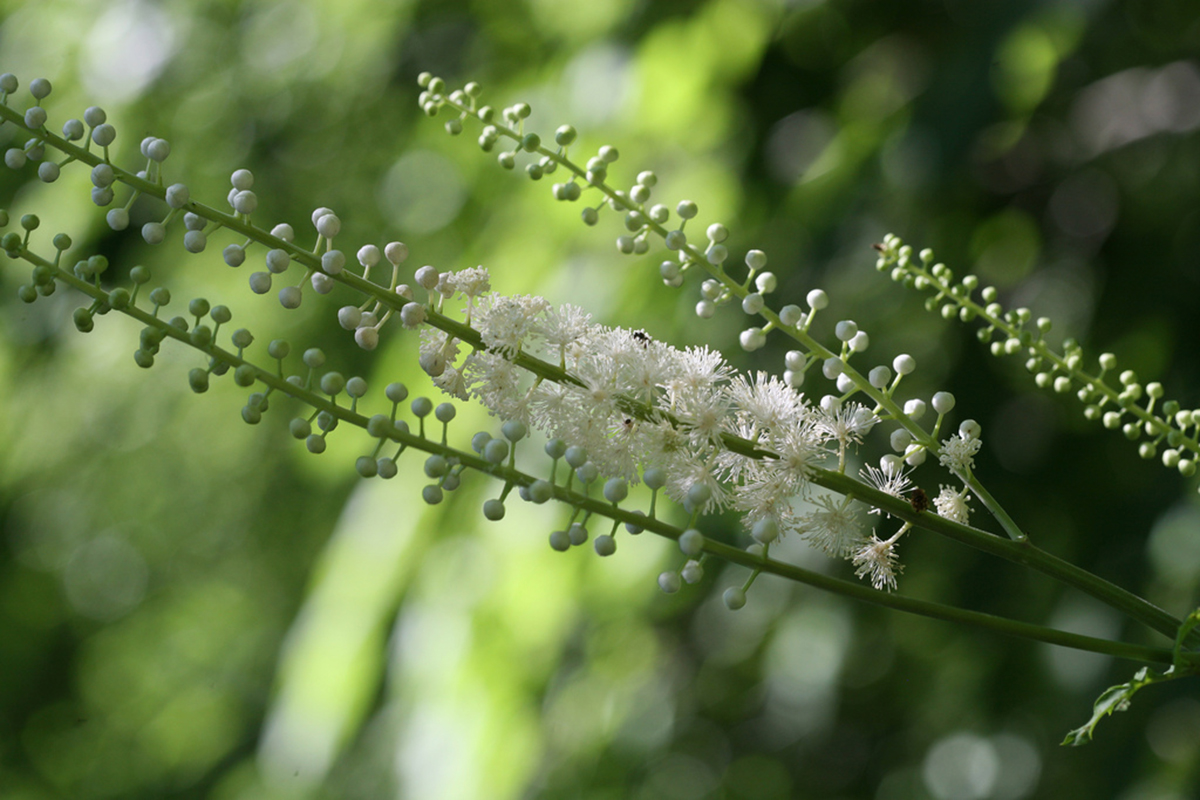Table of Contents
Phytoestrogens are the natural estrogens found in plant sources. Women going through menopause can possibly benefit from these compounds because it can raise estrogen levels and ease hot flashes. As the female body goes through menopause it triggers withdrawal and the brain attempts to kick start the ovaries into action, by causing a dramatic rise in temperature. Ginseng and Dong Quai are both Chinese herbs that have phytoestrogen qualities and can make a woman more comfortable as she transitions through menopause.

Black Cohosh is a herbal supplement may work for hot flashes and night sweats. However, more studies are needed to prove whether the effects are actually beneficial or not. It can have a few side effects such as upset stomach, rashes or in uncommon instances it could affect the liver. Although rare, black cohosh could cause jaundice (yellowing) of the skin or eyes, it if happens a woman should discontinue taking it and see a doctor as soon as possible.
Soy has been one of the most commonly cited remedies for menopause, and soy supplements may not promote breast cancer they way other hormones might. However, not all women are benefited by soy as much as others. According to published reports, soy offers little protection against bone loss, but it does decrease the frequency and severity of hot flashes.
Dong Quai is a Chinese herbal remedy that is frequently touted as a treatment for women’s menopausal symptoms. However, there are few studies on the herb or its effects in humans. According to the University of Maryland, some laboratory tests suggest that dong quai contains compounds that may relieve pain, open up capillaries, and stimulate and relax uterine muscles. More studies are necessary to determine if the herb is safe and works effectively for relieving menopause symptoms.
While vitamin D is an essential building block for a healthy body, it is surprising to learn how beneficial it can be to a menopausal woman. As a woman gets older, her body is not as effective at absorbing vitamin D, which means a greater risk of bone loss. By incorporating the vitamin into the diet, it can promote healthy bone renewal, normal cellular growth and hormonal balance, all of which are important for females going through menopause. A person can receive vitamin D through ten minutes of sun exposure daily or by incorporating foods like sardines, wild salmon, eggs and fortified dairy products into their diet.
Ginseng has shown promise in alleviating hot flashes in menopausal women. According to Vanderbilt University, 60-85% of women experience hot flashes up to 20 times per day, while in menopause. Many women also report feeling anxiety, weakness, and vertigo and heart palpitations due to hot flashes. While there have not been any double-blind placebo studies performed, the university reported that when used on rats, ginseng stimulated the release of adreocorticotrophic hormone or ACTH. ACTH release led to peripheral cooling that occurs after a hot flash, which caused a reduction in body temperature. More studies are needed to determine how the root may aid in the alleviation of hot flashes.
Staying Sane And Healthy Through The Menopause
Menopause is an occurrence that cannot be prevented or avoided. Through maintaining a healthy lifestyle, decreasing stress, and eating a nutrient dense diet, it can help minimize the effects of menopause symptoms. Many women experience mood swings, hot flashes, night sweats and depression during menopause, in addition to other issues that can happen. It can be a difficult transition for some women to make and many health care practitioners are quick to recommend hormone replacement therapy.
For our grandmothers and great-grandmothers, the average life expectancy was much shorter. In the past, when a woman reached menopause, it meant her life was nearing its end. However, the same is not true for the women of today, because we are all living longer and the average life expectancy for a woman is 78 years old.
See Also: Menopause Diet - What to Eat to Manage Menopausal Symptoms?
As a woman enters perimenopause and begins the full transition into menopause, she is not limited to suffering through it because there are many treatment options and natural methods of alleviating the most uncomfortable and bothersome of symptoms. It’s now possible to go through menopause and make the most of the transition, no longer having to suffer silently as the body endured years and years of hormone fluctuations and all the inconvenient symptoms it brings.
- Photo courtesy of dno1967b via Flickr: www.flickr.com/photos/dno1967b/5407279988
- Photo courtesy of lsheirer via Flickr: www.flickr.com/photos/lsheirer/5892075172
- www.project-aware.org/Managing/Hrt/alternatives.shtml
- www.itmonline.org/arts/menopaus.htm
- www.womhealth.org.au/conditions-and-treatments/195-alternatives-to-hrt
- www.rcog.org.uk/globalassets/documents/patients/patient-information-leaflets/gynaecology/pi-alternatives-to-hormone-replacement-therapy-for-symptoms-of-the-menopause.pdf
- umm.edu/health/medical/altmed/herb/dong-quai
- www.promedica.org/workfiles/patient_resources/education/ED-VitaminD.pdf
- www.vanderbilt.edu/AnS/psychology/health_psychology/menopause.htm

